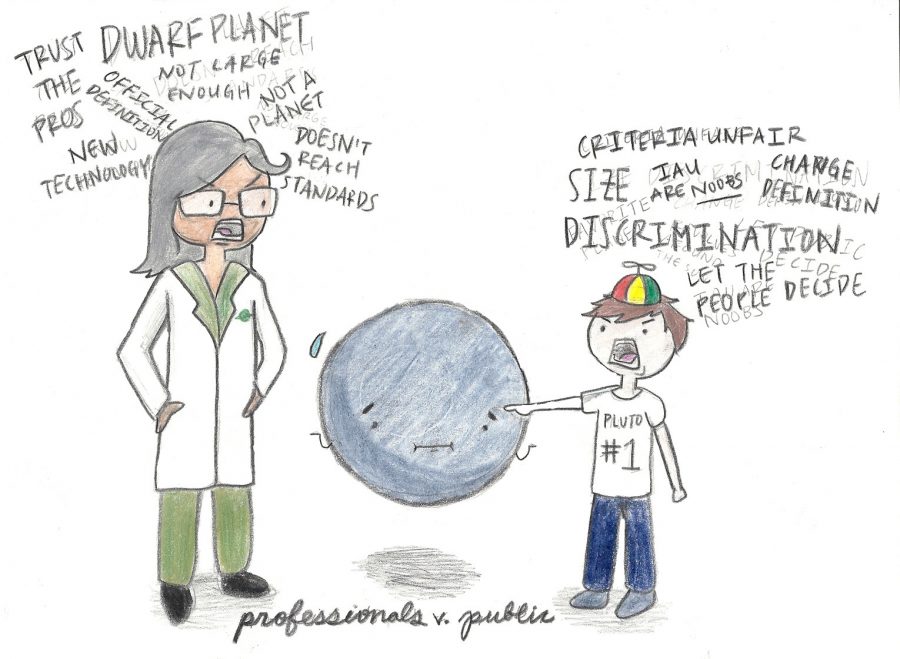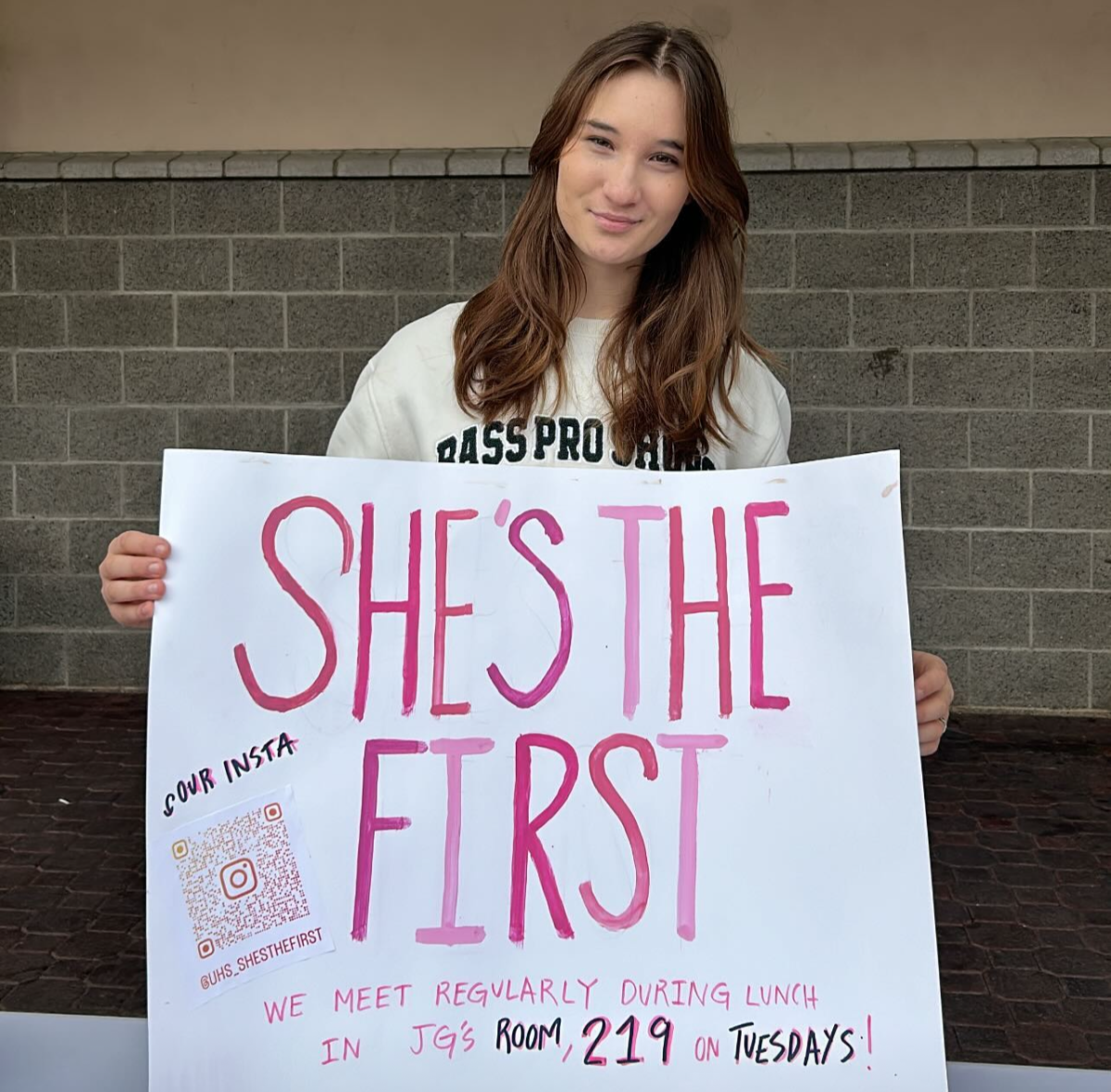
By DIANA ZHANG
Staff Writer
“Pluto is dead,” said Mike Brown, a planetary scientist at the California Institute of Technology. “Pluto is not a planet. There are finally, officially, eight planets in the solar system.” (NBC)
Back in 2006, the smallest planet, Pluto, was renamed a dwarf planet for not fulfilling the expectations that the International Astronomical Union (IAU), the group in charge of naming planetary bodies, had set earlier that year.
According to the Harvard-Smithsonian Center for Astrophysics, a planet is a celestial body that is in orbit around the sun, is round or nearly round, and has “cleared the neighborhood” around its orbit. Pluto follows the first two rules, but it is too small to knock other celestial bodies out of its path, so it is categorized as a dwarf planet.
The definition set by the IAU sparked debates around the country as the public, schoolchildren and even astronomers were baffled by it. Astronomers claimed that the definition only applied to the solar system and failed to acknowledge the exoplanets that orbited other stars in other galaxies. The general public, on the other hand, caused a loud ruckus. According to Huffington Post, there were many children sending hate mail to the Hayden Planetarium, complaining about Pluto’s demotion in status because the dwarf planet was their favorite planet and the IAU had taken that away from them.
Now, eight years later, thanks to the undying love and support of the public, the dispute between whether Pluto should or should not be a planet has finally been brought forward as Harvard University issued an official debate on September 18, 2014. According to the audience present at the debate, Pluto is indeed a planet.
The question is: Why is the public deciding? Should it not have been up to the professionals, who spent years on researching the planets to decide?
Kyra Schmidt (Sr.)“The public is mostly not informed,” said University High School (UHS) Astronomy club member
. “I don’t think the public should define what a planet is scientifically, but what the public believes is still what the majority believes and we can’t change that. If it were up to me, I wouldn’t leave it up to the public to define because there are people out there who know a lot more.”
Ms. Thompson (Science Dept.), a chemistry teacher at UHS, said, “In science, it is hard to change perceptions. But in reality, science doesn’t lie. The public has to admit that there are others who know more. I mean you wouldn’t perform surgery on yourself, would you?”
Jerry Park (Sr.)Likewise, Astronomy Club president
said, “I don’t think the public defines what a planet is because the public opinion fluctuates all the time. They are really uninformed about Pluto because it is not seen with the naked eye. We should leave the defining to the professionals instead.”
Even though the public’s opinion should not be completely discarded from the process of creating something such as defining a planet, it appears that the majority of the UHS staff and students all agree that the defining of a scientific term should be left mainly to the professionals.
Josh Jia (So.),“The definition of Pluto should be left to the professionals,” said
who competed in the International Space Settlement Design Competition this past summer. “The REAL professionals. It should be decided by actual astronomers who focus solely on extraterrestrial objects and systems.”
Mr. Shrake (Science Dept.).“We’re getting better and better at knowing the solar system,” said AP Biology teacher
“It would be better to leave it up to the professionals just to keep things consistent.”














